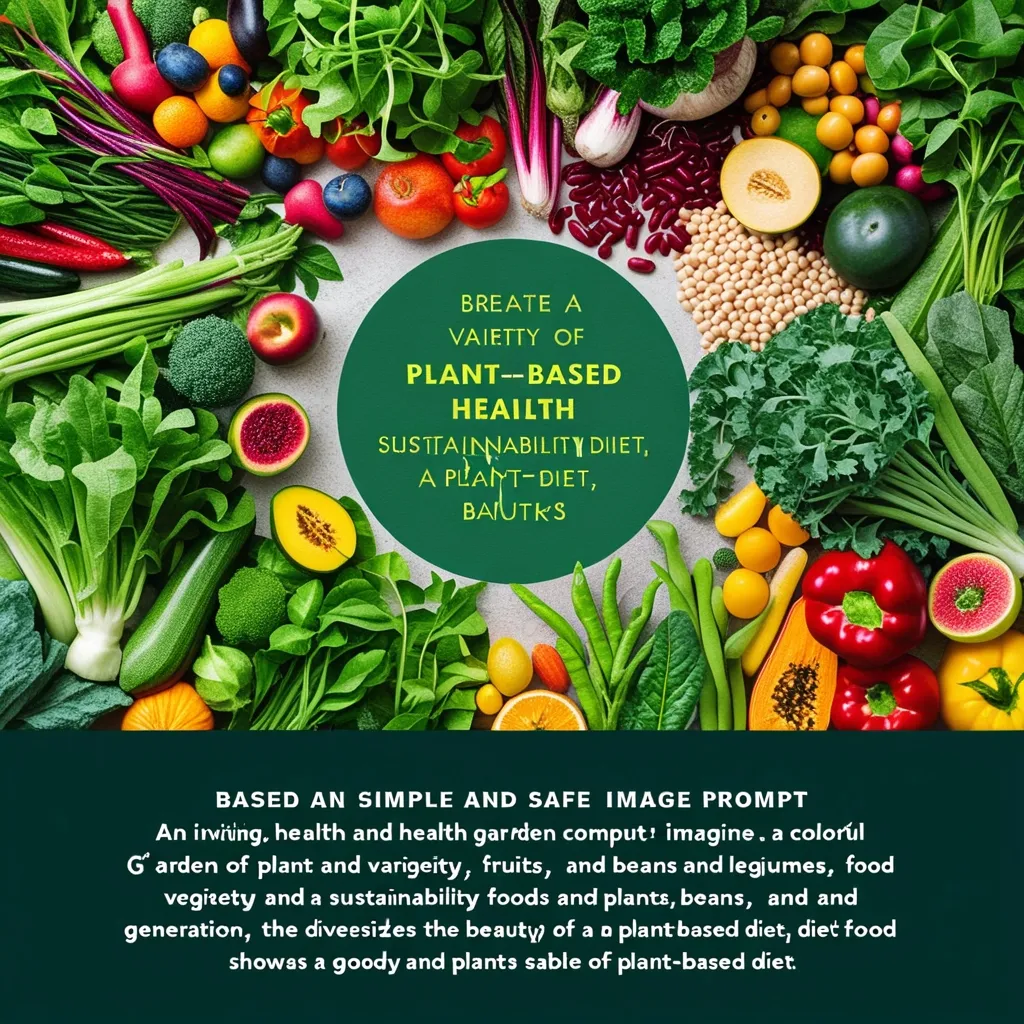Embracing a Plant-Based Diet for Health and Sustainability
You know how you hear all those things about how our diet affects our health and the planet? Well, eating more plants and fewer animal products isn’t just a trend anymore; it’s becoming a crucial way to help ourselves and the world. From better health to a happier environment, here’s how embracing a plant-based diet can make a real difference.
Understanding Plant-Based Diets
When people talk about a plant-based diet, they’re usually referring to a way of eating that focuses on whole, unprocessed plant foods. This means loading up on fruits, vegetables, beans, legumes, whole grains, nuts, and seeds. And here’s the kicker – it doesn’t mean you have to give up meat or dairy completely. It’s more about eating more plants and cutting back on animal products.
Health Benefits
Here’s why a plant-based diet is a game-changer for your health. Studies have shown that diets rich in whole plant foods can lower the risk of heart disease, obesity, diabetes, and even some cancers. By eating veggies, fruits, grains, and legumes, you’re feeding your body essential vitamins, minerals, and antioxidants. Plus, these foods are generally low in bad fats and high in fiber, which means they help with weight management and keeping chronic diseases at bay.
Environmental Impact
Switching to a plant-based diet isn’t just good for you; it’s also a win for the environment. Farming animals for meat and dairy devours a ton of resources. Imagine this: it can take anywhere from 2,000 to 8,000 gallons of water to produce just one pound of beef! Compare that to the much smaller amount of water needed to grow plants, and you start to see why reducing meat and dairy consumption can help conserve water and reduce pollution.
Reducing Greenhouse Gas Emissions
Animal agriculture is a big problem when it comes to greenhouse gas emissions. Cattle, for instance, produce methane, a gas much more potent than carbon dioxide. When cows digest food, they release methane – yep, it happens every time they burp. By reducing the number of livestock, we can cut down on these emissions. New Zealand is even considering a cow burp tax to help tackle this issue!
Transitioning to a Plant-Based Diet
Thinking about making the switch? You don’t need to go full vegan overnight. Start small – maybe designate one day a week as meat-free. The classic “Meatless Monday” is a good pick. Little by little, you can introduce new plant-based recipes into your routine. And trust me, there are tons of delicious options out there. Try dishes from all around the world – Mediterranean, Indian, Asian – they’ve got some fantastic plant-based fare.
Shop Locally and Seasonally
Another tip: buy produce that’s local and in season. This not only supports your local farmers but also cuts down on the carbon footprint. Plus, seasonal fruits and veggies usually taste better!
Avoid Food Waste
Plan your meals and store your food properly to minimize waste. Did you know that about one-third of all food produced globally ends up wasted? It’s shocking, but by being mindful, you can help reduce this waste.
Choose Sustainable Options
When you buy groceries, go for organic and non-GMO products if possible. These options are typically more sustainable and free from harmful pesticides.
Making Sustainable Eating Choices
Being mindful about your eating choices isn’t just about what’s on your plate – it extends to where and how you shop. Buying in bulk can decrease costs and packaging waste. Supporting companies committed to sustainability – those who practice fair labor, use eco-friendly packaging, and champion organic farming – is a great way to make an impact.
Eat More Legumes
Legumes like beans and lentils are incredible. They’re rich in protein and fiber and much more sustainable to grow than meat. So, not only are they good for your body, but they’re also good for the planet.
The Role of Plant-Based Diets in Global Sustainability
Imagine if we all ate a bit more plant-based all around the globe. Some studies predict this could cut down food-related deaths and greenhouse gas emissions by as much as 10% and 70% respectively by 2050. Shifting to more plant-based diets on a worldwide scale could protect natural habitats and reduce water pollution – that’s pretty powerful.
Addressing Common Concerns
Worried that plant-based diets might be too restrictive or lack nutrients? No sweat. With a bit of planning, you can get all the nutrients you need from plants, including protein. Foods like beans, nuts, and seeds are excellent protein sources. And plant-based diets are far from boring – there’s a world of tasty and diverse dishes to discover.
Conclusion
Adopting a plant-based diet doesn’t have to be daunting. By focusing on whole, unprocessed plant foods and reducing meat and dairy, you can boost your health while making a positive impact on the planet. Start small, try out new recipes, and be mindful of your food choices. Together, we can create a healthier, more sustainable world, one meal at a time.






